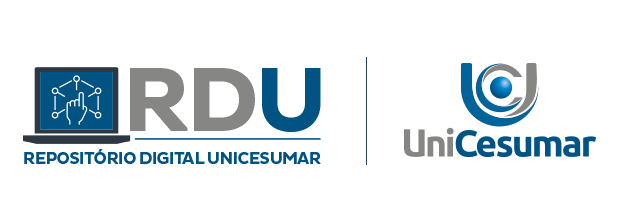Use este identificador para citar ou linkar para este item:
http://rdu.unicesumar.edu.br/handle/123456789/9808| Tipo: | Artigo |
| Título: | Saúde sexual e o autocuidade entre jovens e adolescentes: revisão de literatura |
| Autor(es): | LUVIZETO, Giovanna de Lima TAKAHASHI, Shara Andressa de Avelar |
| Primeiro Orientador: | CHARLO, Patricia Bossolani |
| metadata.dc.contributor.referee1: | CHARLO, Patrícia Bossolani |
| metadata.dc.contributor.referee2: | SCARDOELLI, Marcia Glaciella da Cruz |
| Resumo: | Objetivo: analisar na literatura os fatores inerentes ao processo de informação sobre orientação sexual para jovens e adolescentes. Métodos: revisão de literatura, realizada através das bases de dados científicos Biblioteca Virtual da Saúde (BVS) e PubMed, no período de 2012 a 2022, utilizando-se do operador booleano “AND”. Foram inclusos artigos completos, gratuitos e originais. Após os achados, deu-se a seleção final de seis artigos. Posterior à análise, ocorreu a divisão de três categorias, sendo a primeira, identificando a relação entre gênero e a busca por conhecimento; a segunda, compreendendo a procura por conhecimento e o acesso facilitado com informação não segura; e a terceira, identificando o despreparo dos pais para com os filhos acerca da educação sexual. Conclusão: constatou-se a dificuldade que os pais apresentam em expor a temática sexualidade com seus filhos, denotando timidez e inflexibilidade. Em contrapartida, os filhos sentem a necessidade do repasse de informações e, por muitas vezes, acabam buscando com fontes inconsistentes. Contudo, é de suma importância que o profissional de enfermagem contribua no que diz respeito à saúde sexual e condutas conscientes, visto que o Enfermeiro tem total competência nesse meio social. Entretanto, a orientação no âmbito familiar e em outros aspectos se faz necessário, a fim de superar os desafios encontrados nesse estudo. |
| Abstract: | Objective: analyze in the literature the factors inherent in the information process about sexual orientation for youth and adolescents. Methods: literature review, conducted through the scientific databases Virtual Health Library (VHL) and PubMed, from 2012 to 2022, using the Boolean operator "AND". Complete, free and original articles were included. After the findings, a final selection of six articles was made. After the analysis, there was the division of three categories, the first identifying the relationship between gender and the search for knowledge; the second, understanding the search for knowledge and the easy access to unsafe information; and the third, identifying the unpreparedness of parents for their children about sex education. Conclusion: it was found the difficulty that parents have in exposing the sexuality theme with their children, denoting shyness and inflexibility. On the other hand, children feel the need to pass on information and, many times, end up searching with inconsistent sources. However, it is of utmost importance that the nursing professional contributes with regard to sexual health and conscious behaviors, since the nurse has full competence in this social environment. However, guidance within the family and in other aspects is necessary in order to overcome the challenges found in this study |
| Palavras-chave: | Educação sexual Adolescente Orientação Saúde Sexual Relações Pais-Filhos |
| CNPq: | CNPQ::CIENCIAS DA SAUDE::ENFERMAGEM |
| Idioma: | por |
| País: | Brasil |
| Editor: | UNIVERSIDADE CESUMAR |
| Sigla da Instituição: | UNICESUMAR |
| Tipo de Acesso: | Acesso Aberto |
| URI: | http://rdu.unicesumar.edu.br/handle/123456789/9808 |
| Data do documento: | 19-Mai-2023 |
| Aparece nas coleções: | ENFERMAGEM |
Arquivos associados a este item:
| Arquivo | Descrição | Tamanho | Formato | |
|---|---|---|---|---|
| LUVIZETO, GIOVANNA DE LIMA; TAKAHASHI, SHARA ANDRESSA DE AVELAR.pdf | Artigo apresentado ao curso de graduação em Enfermagem da Universidade Cesumar – UNICESUMAR como requisito parcial para a obtenção do título de bacharel(a) em Enfermagem. | 564.97 kB | Adobe PDF |  Visualizar/Abrir |
Os itens no repositório estão protegidos por copyright, com todos os direitos reservados, salvo quando é indicado o contrário.
